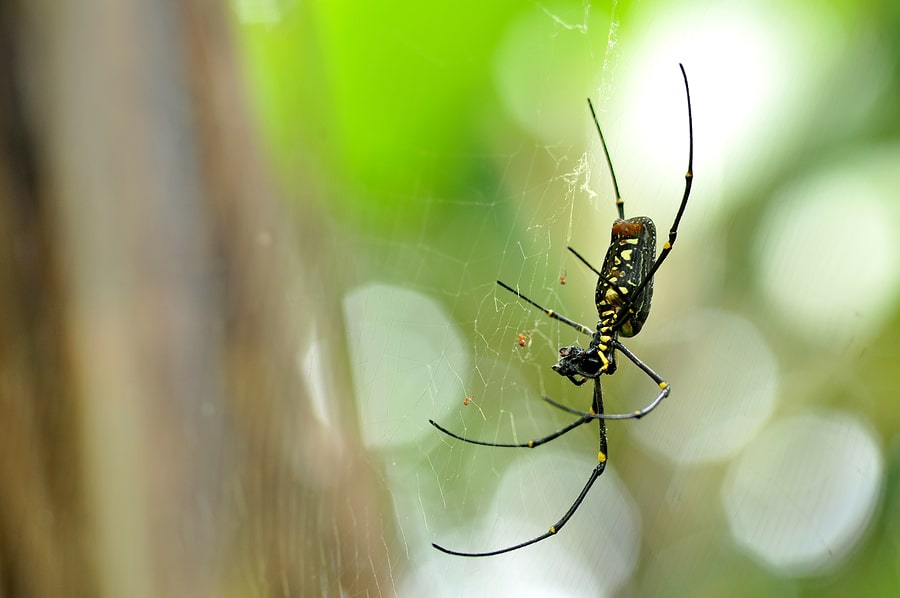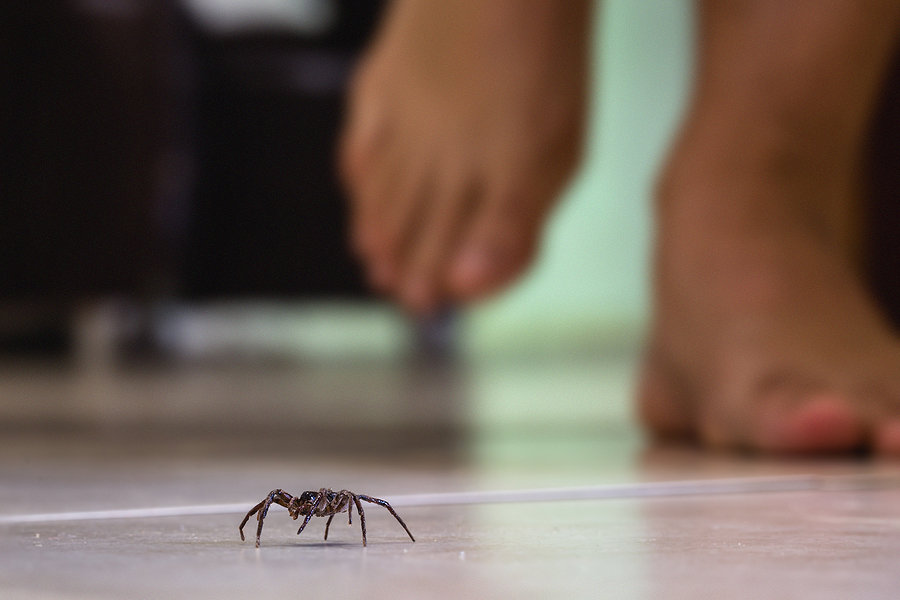READY TO GET STARTED?
REQUEST A FREE ESTIMATE
Fill out the form below or call (888) 466-7849 for a free, no-obligation estimate.

Orb weavers are a broad family of spiders found throughout the United States and Canada. The orb weaver is known for the large, majestic web it weaves. These webs are commonly found on tree branches, in tall grass, bushes, and around light fixtures. They are often found where abundant food sources are available (in your yard or garden, near lights that are on at night, etc.).
Most orb weavers appear in the spring when their eggs hatch, but they aren’t really noticed until late summer and fall (when the males go out in search of their mates). Female orb weavers hang out in their webs, eating and waiting on a male to come find them. Males are always on the move, rarely building webs, searching for a partner. At the end of fall, females will lay their eggs and then die during the first frost. Males typically die after mating. Because of their structure, orb weaver eggs can survive the cold weather of winter. When the weather warms up in the spring, the eggs hatch, releasing a new brood of orb weaver babies.
These spiders are known to be docile and non-aggressive. They rarely bite and aren’t considered dangerous to humans or pets. In fact, they can be beneficial to have around as they trap and eat other pests that can infest your home.
Prevention is unnecessary with orb weavers unless their web is built in an inconvenient location or a location with high human traffic. They cause no structural damage. You can lessen your chances of encountering orb weavers by:
If you have a problem with orb weavers or any other pests, contact your local pest control company.
Common Winter Wildlife to Lookout For
How To Identify A Water Moccasin
Keep Ants Out of Your Home this Spring

Spiders are considered year-round pests, but they seem to come out in full force during the summer months. Some common spiders you may encounter this summer include wolf spiders, orb weavers, garden spiders, house spiders, brown recluse spiders, and black widow spiders. While most of these are harmless, brown recluses and black widows can be dangerous to humans with their venomous bites.
The spiders you see in the summer most likely aren’t just now making their way into your home; there’s a good chance they’ve already been hiding out inside for a while. They will commonly emerge in large numbers in the summer for two main reasons:
Seeing a spider here and there inside your home is usually nothing to worry about; they can sneak in through open windows, doors, etc. Seeing them in large numbers, however, can indicate a much bigger problem. Spider infestations can be the result of:
Having a spider infestation in your home can leave you with webs everywhere, the risk of spider bites that can be painful and potentially dangerous, and the possibility of other pest infestations, as well. You can keep spiders out by:
If you have a problem with spiders, contact your local pest control company for a thorough inspection and treatment plan.
Controlling Birds During the Summer Months